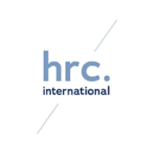The J1 Visa Program is a unique opportunity for international talent to gain hands-on experience in the United States, combining professional growth with cultural exchange. For host employers, this program goes beyond providing a workplace; it’s about mentoring and empowering participants to grow into future leaders in the hospitality industry. With the right strategies, J1 host employers can create an enriching environment that nurtures participants’ skills and contributes to their career success.
Understanding the J1 Program’s Career Development Goals
The J1 program is designed to provide participants with real-world professional experience that aligns with their career goals. It emphasizes cultural exchange while preparing them for leadership roles in the global economy. Host employers play a vital role in ensuring participants gain valuable skills, grow their networks, and leave with a sense of accomplishment.
For those in hospitality jobs, this program provides exposure to the fast-paced industry, practical knowledge, and an opportunity to build connections in one of the world’s most dynamic sectors.
Setting Goals and Expectations
- Establish Clear Expectations
The first step in supporting a J1 participant is to set clear goals. During onboarding, discuss the participant’s career aspirations and align them with your organization’s objectives. Establishing a roadmap with measurable milestones to help track the progress. - Regular Check-Ins
Frequent feedback sessions help participants stay on track and give employers the opportunity to address concerns and provide constructive guidance. These check-ins foster open communication and ensure that both parties are aligned.
Providing Hands-On Experience in Hospitality Jobs
- Real-World Learning Opportunities
J1 participants thrive when given meaningful, hands-on tasks. Instead of limiting them to basic duties, involve them in challenging projects that contribute to your business. For example, assign them to assist in managing events, guest relations, or team coordination. - Exposure to Different Roles
Rotating participants through various departments allows them to gain a well-rounded understanding of the hospitality industry. This cross-training not only enhances their skills but also makes them more adaptable professionals.
Fostering Networking Opportunities
- Building Professional Connections
Networking is a key component of career development. As a host employer, you can facilitate introductions to industry professionals, whether within your organization or through external events. Encourage participation in seminars, workshops, and conferences to broaden their exposure. - Leveraging Internal Resources
Introduce participants to senior team members or mentors who can provide guidance and share industry insights. These relationships often lead to long-lasting professional connections that benefit participants throughout their careers.

Supporting Skill Development and Growth
- Access to Training Programs
Providing access to internal or external training programs is a great way to enhance participants’ technical and soft skills. Whether it’s a workshop on customer service excellence or a course in hospitality technology, these opportunities show your commitment to their growth. - Encouraging Leadership Development
Allow participants to take on leadership roles in smaller projects. For example, let them lead a team meeting or manage a guest satisfaction initiative. These experiences prepare them for higher responsibilities in their future careers.
Promoting Cultural Exchange in Hospitality Jobs
The J1 program emphasizes cultural exchange as a cornerstone of the experience. Host employers can create an environment that celebrates diversity and fosters mutual learning.
- Sharing Cultures
Encourage participants to share their cultural heritage through presentations, food tastings, or cultural events. This enriches the workplace environment and promotes inclusivity among your team. - Learning from Participants
Cultural exchange is a two-way street. By learning about the participants’ customs and traditions, host organizations can gain valuable insights that may improve their approach to serving a global clientele.
Creating a Supportive Work Environment
- Open Communication Channels
Encourage participants to voice their concerns, ask questions, and share their experiences. An open-door policy helps build trust and ensures they feel supported throughout their journey. - Providing Feedback
Constructive feedback is vital for growth. Provide regular evaluations that highlight their strengths and offer actionable suggestions for improvement. Positive reinforcement boosts their confidence and motivation.
Measuring the Impact of Supporting J1 Participants
When J1 participants feel supported, they leave with enhanced skills, expanded networks, and a deep understanding of the hospitality industry. Host organizations, in turn, benefit from their fresh perspectives, cultural insights, and enthusiastic contributions to the workplace.
Participants often become ambassadors for your organization, sharing their positive experiences with peers in their home countries. This strengthens your company’s reputation and establishes your commitment to fostering international talent.
“The most satisfying part for me is seeing the young professionals develop their skills in front of my eyes to become leaders at the workplace and in the community. “
– Chef Claude Le Tohic, Meilleur Ouvrier de France – Executive Chef ONE65 San Francisco
Supporting J1 participants’ career development is more than a responsibility—it’s an opportunity to shape the future of hospitality jobs. By mentoring, providing hands-on experience, and fostering cultural exchange, host employers can leave a lasting impact on participants’ lives while enriching their organizations. Together, we can create a thriving global hospitality industry that benefits from diverse perspectives and innovative ideas!
